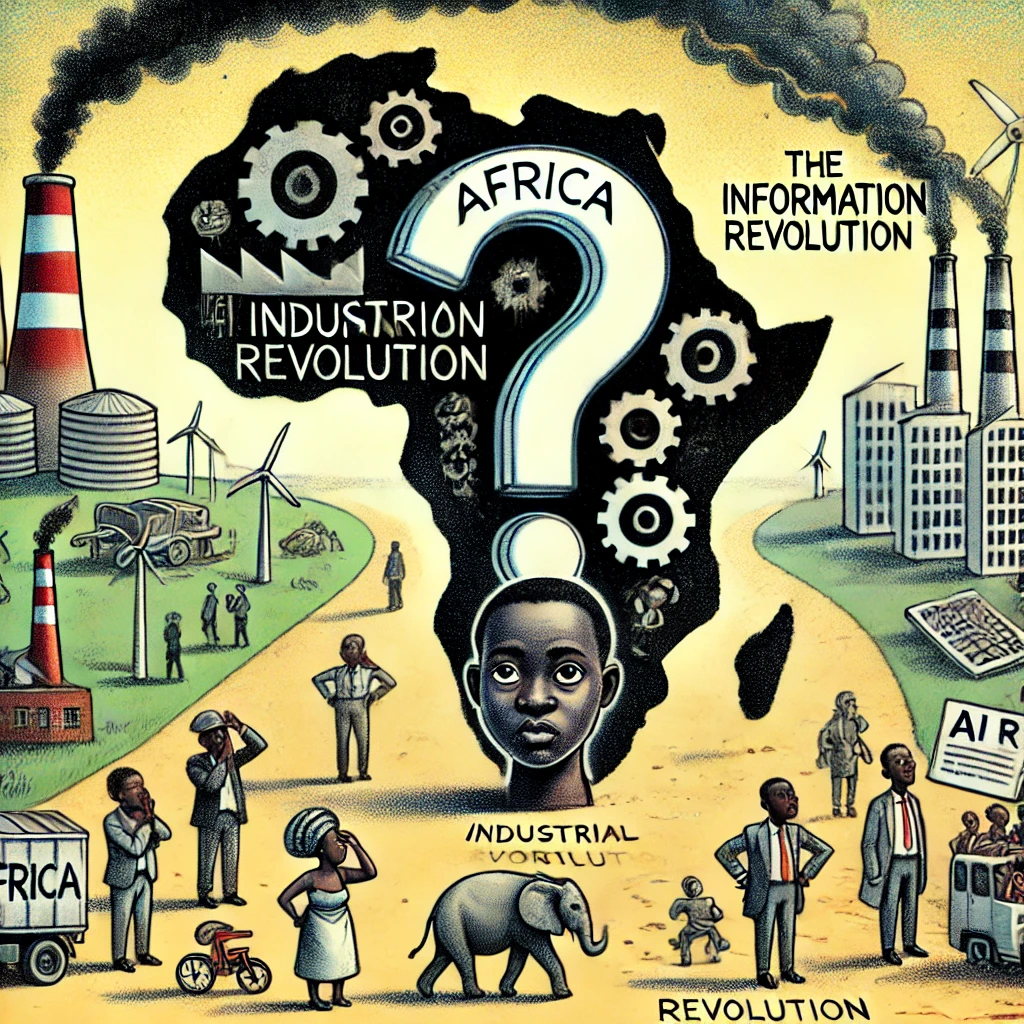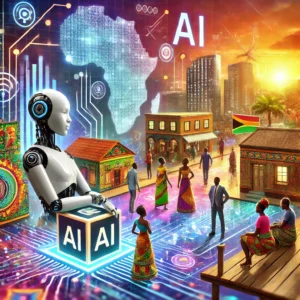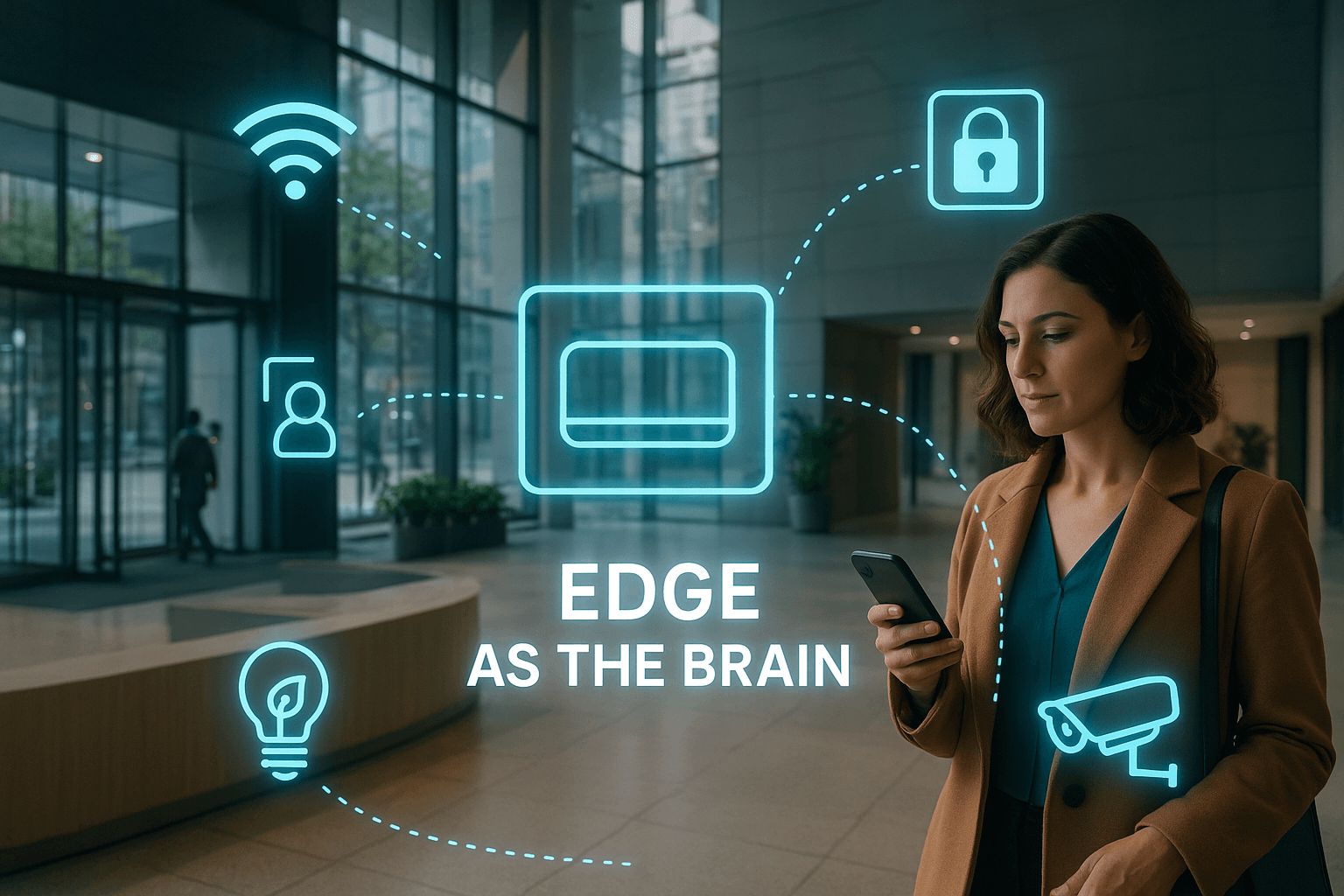
The AI Revolution: Are We Handing the Future Over to Big Tech?
The world is at the dawn of the AI revolution, a technological shift poised to redefine every aspect of society. However, this revolution is currently being steered by a handful of powerful corporations in the U.S. and China. These tech giants, including OpenAI, Microsoft, and companies like Google and Meta, are developing large language models (LLMs) with vast resources at their disposal. While these advancements are remarkable, they raise pressing concerns about control, privacy, and the inclusivity of this new technological era. One can’t help but ask: Are we inadvertently handing over the future to these big corporations? And where does Africa stand in this race?
Big Tech’s Dominance: A Monopoly on the AI Narrative
Let’s be clear: the current state of AI is being dictated by those who control the most data and computational power. OpenAI’s ChatGPT and Meta’s LLaMA are prime examples of how vast data collection is fueling the development of sophisticated AI models. These corporations have the resources to collect and process massive amounts of data from public interactions, building AI systems that learn, adapt, and improve at a staggering pace. But at what cost?
The control of AI by a few entities creates a monopoly on the narrative of how this technology develops and is used. This monopoly poses risks, including potential biases in AI systems, the erosion of privacy, and the risk of AI being used for surveillance or manipulation. When a small number of corporations control the technology, they also control the direction in which it evolves, often prioritizing profit and control over societal good.
The Missing African Perspective
Africa, a continent rich in diversity, culture, and languages, is at risk of being left out of this AI revolution. Historically, Africa has been sidelined in major economic shifts, such as the Industrial and Digital Revolutions. Now, as we stand on the brink of the AI era, the lack of infrastructure and investment in AI research across the continent threatens to widen this gap.
The absence of African languages and contexts in major AI models means that these systems fail to serve a significant portion of the world’s population effectively. Current AI technologies are primarily trained on data from Western contexts, neglecting the rich linguistic and cultural diversity of Africa. This lack of representation has real consequences, from perpetuating biases to failing to provide solutions that are relevant and effective for African communities.

The Opportunity for Africa: Building Our AI Future
Despite these challenges, Africa has a unique opportunity to take control of its AI future. Instead of focusing on large, generalized models controlled by a few corporations, Africa can develop smaller, targeted AI models that cater to local needs. At ARED, we believe in leveraging edge computing to process AI models locally, allowing us to bridge the infrastructure gap and build solutions tailored to African contexts.
Imagine an open-source AI model trained on African languages and experiences, designed to serve the needs of the continent. Such a model would democratize access to AI, enabling local businesses, developers, and communities to create applications that address specific challenges in areas like agriculture, healthcare, education, and more. This isn’t just about having a seat at the table—it’s about building the table ourselves.
The Role of Edge Computing in Decentralizing AI
Edge computing can play a critical role in decentralizing AI and reducing dependence on large data centers controlled by major corporations. By processing data locally on devices at the “edge” of the network, we can reduce latency, improve security, and make AI accessible even in areas with limited internet infrastructure. This approach is particularly valuable in Africa, where internet connectivity can be inconsistent or costly.
By developing AI models that run on edge gateways, we can empower local communities and businesses to use AI without needing to rely on cloud-based services owned by big tech companies. This decentralized approach not only improves data privacy but also allows for more personalized and context-aware AI solutions.
Ethical Concerns: Privacy and Bias in AI
The current model of AI development raises serious ethical concerns. Large corporations collect vast amounts of personal data to train their models, often without the explicit consent or full understanding of the individuals involved. This data is used to create systems that can influence decisions, target advertising, and even manipulate behavior. The concentration of such power in the hands of a few companies poses a threat to individual privacy and autonomy.
Moreover, AI models are only as good as the data they are trained on. When these models are built primarily on Western data sets, they can inadvertently perpetuate biases and fail to recognize the nuances of other cultures. This bias can manifest in various ways, from misinterpreting language and context to reinforcing stereotypes. In a world where AI is becoming increasingly integrated into decision-making processes, the lack of diversity in these models is a significant issue.
The Path Forward: Building an Inclusive AI Ecosystem
To avoid being left behind, Africa must actively participate in shaping the future of AI. This means investing in infrastructure, fostering collaboration between governments, private sector players, and educational institutions, and focusing on building AI models that reflect the continent’s linguistic and cultural diversity.
- Open-Source AI Development: Developing open-source AI models that are accessible and customizable allows African developers to build solutions tailored to local needs. Open-source models can also facilitate collaboration and innovation across the continent.
- Education and Skill Development: Investing in AI education and skill development is crucial. By training a new generation of African AI experts, we can ensure that the continent has the talent and expertise needed to drive AI innovation.
- Policy and Regulation: Governments must play a role in regulating the use of AI to ensure ethical practices, protect privacy, and promote fairness. This includes creating frameworks for data protection and ensuring that AI systems are transparent and accountable.
Conclusion: Seizing the AI Moment
The AI revolution is here, and it’s reshaping the world at an unprecedented pace. If Africa does not take an active role in this transformation, we risk being passive consumers of technology shaped by others, with little regard for our unique contexts and needs. However, by leveraging edge computing, fostering open-source collaboration, and prioritizing ethical AI development, we can create a future where AI serves all of humanity, not just the interests of a few powerful corporations.
Join the Debate: What are your thoughts on the current state of AI development? How can we ensure that Africa plays a significant role in this revolution? Share your insights and let’s shape the future of AI together.


